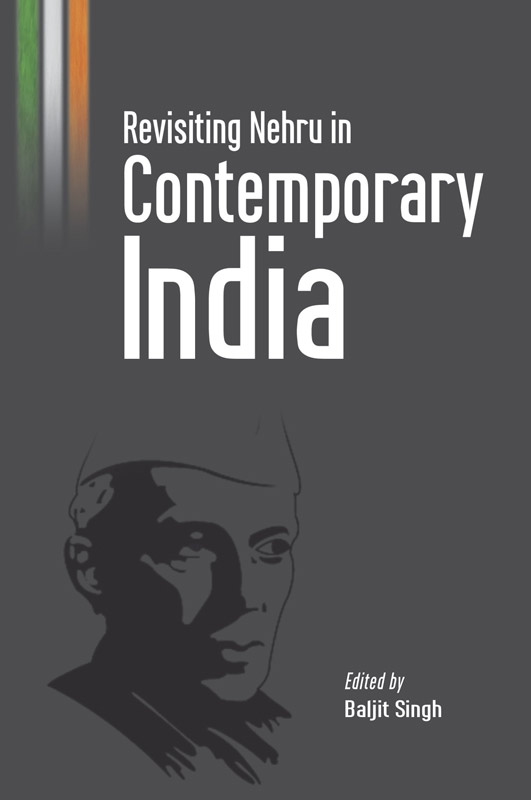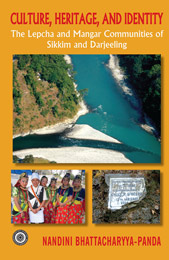Jawaharlal Nehru being an architect of Indian polity, economy and foreign policy set the ball rolling. However, they have witnessed cataclysmic changes over a period of time. Indian polity has witnessed different waves of reorganisation of states, evolving democracy, spelling out of quasi-federal system and building a more inclusive political nation. Nehru set the agenda of economic development and framed the strategy of development accordingly. Since 1991, the Indian economy has already experienced a shift in its strategy of development from mixed to market friendly economy but it has neither been able to address its economic problems fully nor does the logic of neo-liberal economy match with social democracy as envisaged by Nehru. India’s world view was shaped by Nehru keeping in view internal and external scenarios apart from contemplating the needs and future aspirations of a newly liberated nation. It has already been redefined by his successors in the light of changing times and space, without undermining the basic postulations of India’s foreign policy laid down by Nehru. Nehru is either appreciated for what he has done or blamed for what he could not do or handle properly when he was at the helm of affairs. At times Nehru’s performance has been assessed without locating him in the time and space in which he performed with all the limitations of a newly liberated state. In this volume an attempt has made to have a fair understanding about Nehru by placing him in the context in which he worked and by taking into account the challenges that Post-Colonial India was facing during his time. However, the problems faced by the neo-liberal economy, and the challenges confronting Indian polity and foreign policy have again invoked the relevance of Nehruvian philosophy in contemporary India. The contributors to this volume have analysed the diverse aspects of Nehru’s thinking and the policies that flowed from it to understand their relevance in contemporary Indian, Asian and global context.
Baljit Singh (Ed)
Baljit Singh is Professor in Political Science and Director, Nehru Studies Centre, University of Jammu, Jammu. He is also Honorary Director, Department of Strategic and Regional Studies, in the University. He has been engaged in teaching at postgraduate level for the last twenty years. His areas of specialisation are International Politics, Politics in South Asia, India’s Foreign Policy and Political Theory. He has published several research papers in various journals and books of national and international repute. He has co-edited two books: South Asia: Dynamics of Politics, Economy and Society (2006) and Politics of Identities in Jammu & Kashmir—A Contested Terrain (2008). He has also been supervising candidates pursuing their M. Phil and Ph. D degrees in Political Science. Thirteen M. Phil and two Ph. D degrees have already been awarded under his supervision.
NEHRU STUDIES CENTRE
The Nehru Studies Centre (NSC) was established under the UGC Scheme of Epoch Making Social Thinkers in May 2006 with a mandate to create awareness regarding Nehru’s contribution to India besides familiarizing the students, faculty and civil society about his philosophy. Since its inception, the NSC has organized four National Seminars and five National Workshops on the various subjects dealt by Nehru during his tenure as Prime Minister of India. The selected research papers presented in aforesaid seminars and workshops have published in the South Asian Survey an international journal which is being published by Sage Publishers. The NSC has produced some monographs on the diverse aspects of Nehruvian philosophy apart from organizing photo exhibition on Nehru in Kashmir. The book is the outcome of the papers invited by the Nehru Studies Centre, University of Jammu, Jammu.
Contents
Prefacei
Contributors
1. Locating Nehru in Contemporary India
Baljit Singh
2. Jawaharlal Nehru’s Conception of History
Sukhdev Singh Sohal
3. Nehru’s Idea of Federalism and Nation-Building in India
Ranjit Singh
4. Kashmir and Nehru: Contours of a Troubled Legacy
Simrit Kahlon
5. Communalism, Nehru and National Unity
Suneel Kumar
6. Nehru’s Paradigm of Panchayati Raj and Its Contemporary Relevance
Ranbir Singh and Saroj Malik
7. Jawaharlal Nehru, Neo-Liberalism and Social Democracy: Mapping the Shifting Trajectories of Developmental State in India
Ronki Ram
8. Nation-Building, Natural Resources and Regional Development in India: Revisiting the Nehruvian
Vision Ambrish Dhaka
9. Foreign Policy in India’s Development Since Nehru Era
Baljit Singh
10. Asian Security Structure and Challenges for India: Efficacy of the Nehruvian Approach
Rajpal Budania
11. Nehru and India’s China Policy
Baljit Singh
12. Nuclear Technology and Nehru’s Outlook
Suneel Kumar
13 India’s Policy Towards Nepal and Bhutan: Nehru to Present
Debamitra Mitra


 Political Science
Political Science

